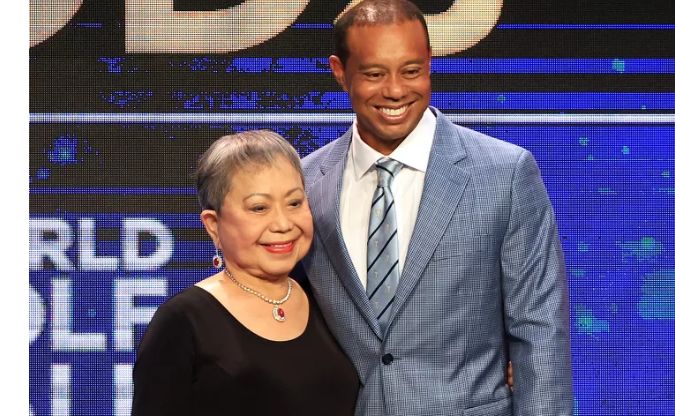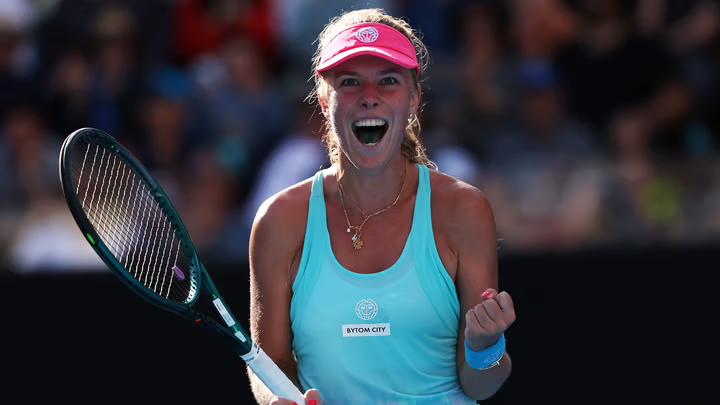NJ woman alleges she was sexually assaulted on American Airlines flight, blames carrier for ‘failing to prevent’ it
A lawsuit claims that the suspect covered himself and the victim with his black puffer jacket and “digitally penetrated her” as she slept.
A New Jersey woman has alleged that a stranger sexually assaulted her on an American Airlines flight, and has blamed her carrier for not being able to stop the attack. Documents filed in federal court last week revealed that the incident took place during a nighttime flight from Charlotte, NC, to Newark Liberty International Airport in New Jersey on August 26, 2022.
NJ woman alleges she was sexually assaulted on American Airlines flight (Photo by Kena Betancur / AFP – representational image)(AFP)
NJ woman alleges she was sexually assaulted on American Airlines flight (Photo by Kena Betancur / AFP – representational image)(AFP)
The incident
The lawsuit alleges that the woman fell asleep shortly after the plane took off, and later “awoke to find the Perpetrator’s left arm inside her pants and his right hand forcing her hand onto his penis,” according to New York Post. During the two-hour flight, the victim was seated between a friend and the “unknown male passenger.”
Master IT Project Management with an ISB programme. Apply Now!
Today’s Quiz
20k Participants
The suit alleges that the suspect covered himself and the victim with his black puffer jacket and “digitally penetrated her” as she slept. The woman was left frozen in “a state of shock and panic” when she woke up.
The man then climbed on top of the woman, “attempting to penetrate her with his penis, which he was partially able to do,” the lawsuit says. “Plaintiff gathered the courage to push Perpetrator away, at which point he quickly returned to his seat,” the suit claims.
When the suspect noticed a flight attendant nearby, he pretended as if nothing happened. He asked the victim if she wanted water while “forcibly holding her hand,” the suit alleges.
The woman woke her friend and they reported the incident to a flight attendant. The woman’s seat was switched for the rest of the flight.
The man was “escorted off the plane” when the flight landed. Authorities went on to take reports from the victim and other witnesses to the attack, but as per the suit, it is “unknown whether the Perpetrator was taken into custody and/or ever charged with the sexual assault of Plaintiff.”
The lawsuit asserts that the airline industry is “well aware” of the rising cases of sexual assaults on flights, and stresses that the victim “did nothing to cause or contribute to the cause of the assault she suffered.” It adds that American Airlines “owed a duty of care” to ensure her safety during the journey.
“American Airlines breached its duty of care by failing to properly monitor the cabin, failing to prevent the sexual assault, and failing to promptly intervene when the assault occurred,” the lawsuit claims.
The woman’s lawyer, Brian Andris, told New York Post on Monday, September 26, “As alleged in the complaint, we look forward to seeking justice on behalf of our client to remedy this terrible injustice for all that she has suffered.”
Next Story
RG Kar case: Every suspect has the right to a lawyer irrespective of the crime
Aug 28, 2024 09:13 PM IST
Why is it important that all parties in a criminal trial are represented? Can lawyers choose which cases they wish to represent?
The alleged rape and murder of a trainee doctor at RG Kar Medical College in Kolkata has sparked nationwide protests, with citizens demanding increased safety for women at workplaces.
Kolkata, India – Aug. 28, 2024: Junior doctors take part in a protest rally over alleged rape and murder of a trainee doctor of RG Kar Medical College & Hospital in Kolkata, India, on Wednesday, August 28, 2024. (Photo by Samir Jana/ Hindustan Times)(Hindustan Times) PREMIUM
Kolkata, India – Aug. 28, 2024: Junior doctors take part in a protest rally over alleged rape and murder of a trainee doctor of RG Kar Medical College & Hospital in Kolkata, India, on Wednesday, August 28, 2024. (Photo by Samir Jana/ Hindustan Times)(Hindustan Times)
This incident has brought two critical issues to the forefront: First, the lack of state accountability, highlighted by the delayed filing of the FIR and alleged tampering of the crime scene; and, second, the entrenched rape culture, with protestors calling for harsher penalties, including the death penalty and public executions though evidence suggests such stringent anti-rape laws have not shown effective deterrence in the past.
A three-judge bench of the Supreme Court, led by Chief Justice D.Y. Chandrachud, took suo moto cognisance of the incident while it was still pending before the Calcutta High Court. The Supreme Court acknowledged that, while experienced High Court judges were handling the case, it raised broader concerns about the safety of doctors across the nation. As the hearings commenced, live streaming and widespread reporting attracted significant public attention.
Senior advocate Kapil Sibal, advocate-on-record Astha Sharma, and her team are representing the State of West Bengal. When no one represented the accused, Sanjay Roy, the District Legal Services Authority (DLSA), Sealdah appointed advocate Kabita Sarkar to defend Roy. Social media platforms like WhatsApp were quickly flooded with messages shaming the lawyers, particularly women lawyers, for representing the accused in a rape case.
Sharma reported that the women lawyers were threatened with the same fate as the RG Kar victim. The public heat towards defending lawyers rests on a simplistic and misguided notion that defending a rape accused—who, by law, is presumed innocent until proven guilty — equates to opposing rape reforms or victim’s rights.
This perspective disregards the fundamental principles of the criminal justice system, particularly the necessity of adequate representation of both sides to achieve true justice. Defence lawyers play a critical role in ensuring that trials are fair and that any conviction is based on evidence, which proves guilt beyond reasonable doubt.
Justice is about delivering a verdict and adhering to the proper legal processes that ensure fairness and integrity. Procedural justice, which safeguards the rights of all parties involved, is as vital as substantive justice in the pursuit of truth and accountability.
Two key constitutional guarantees—the right to legal representation by a lawyer of choice (Article 22(1)) and the right to legal aid (Article 39A)—are reflected in criminal procedure to ensure their effective implementation. Section 339 of the BNSS-CrPC mandates that an advocate of their choice represent all accused persons, while Section 340 of the BNSS-CrPC obliges the court to appoint an advocate for the defence of those who cannot afford one.
These provisions are not merely procedural formalities but central to due process and fair trial principles. An accused facing trial is at the risk of losing liberty, a cherished fundamental right. Courts have repeatedly underscored the importance of ensuring that state-aided counsel or amicus curiae is provided if the accused lacks representation, recognising that a fair trial is indispensable in the justice system.
The Bar Council of India’s (BCI) rules on Standards of Professional Conduct and Etiquette require advocates to accept any brief in any forum where they practice, provided they receive a fee consistent with what they and their peers typically charge for such legal services (Rule 11). However, the rules include a caveat that allows lawyers to refuse a brief under ‘special circumstances’ —a discretion that is not clearly defined and remains open to interpretation.
A comparable provision in the American Model Rules of Professional Conduct (2004) allows lawyers to decline representation for ‘good cause,’ which is limited to three situations – first, when the lawyer is incompetent to handle the matter; second, when there is a conflict of interest; and third, when taking on the case would be unreasonably burdensome. The BCI Rules are stricter in guiding these circumstances for refusal. Rule 15 states that lawyers shouldn’t back down from representing a client out of fear of unpleasant consequences, either for themselves or others. They are expected to defend the accused, no matter their personal opinions on their guilt, and stand by the principle that no one should be convicted without solid evidence.
As it noted, “[A]n advocate, in the discharge of [her] duty, knows but one person in all the world, and that person is [her] client. To save that client by all means and expedients, and at all hazards and costs to other persons, and, amongst them, to [herself], is [her] first and only duty; and in performing this duty [she] must not regard the alarm, the torments, the destruction which [she] may bring upon others”.
It’s absurd to assume that the defence lawyers in the RG Kar case—or other high-profile cases like Nirbhaya, Jessica Lal, or Ajmal Kasab— don’t condemn horrific crimes. While such gruesome criminal acts must be condemned, this condemnation should not come in the way of a lawyer’s responsibility to ensure that those accused are subjected to the due process of law. A crucial part of justice delivery is to put procedure first and show confidence that a fair process will lead to true justice.
Even the Supreme Court, on previous occasions, has taken a strict view against the contagious trend of advocates’ associations passing resolutions not to allow lawyers to defend.
It has noted, “[…] whether on the ground that he is a policeman or on the ground that he is a suspected terrorist, rapist, mass murderer, etc. is against all norms of the Constitution, the Statute and professional ethics. It is against the great traditions of the Bar which has always stood up for defending persons accused of a crime. Such a resolution is, in fact, a disgrace to the legal community. We declare that all such resolutions of Bar Associations in India are null and void and the right-minded lawyers should ignore and defy such resolutions if they want democracy and the rule of law to be upheld in this country. It is the duty of a lawyer to defend no matter what the consequences […]”
The protests sparked by the tragic incident at RG Kar Medical College underscore critical concerns about women’s safety. However, justice cannot be conflated with swift retribution. Stripping an accused of their right to a fair defence undermines the integrity of the legal process and sets a dangerous precedent. While the affluent will always secure quality legal representation, it is the poor and marginalized—those already disempowered by systemic inequities—who are most in need of these protections. These safeguards must be fiercely defended, not sacrificed to rushed judgments.
Shrutika Pandey is a lawyer and researcher specialising in access to justice. She engages in developing strategies to advance the rights of undertrial prisoners through legal representation, research, and advocacy. The views expressed are personal.






